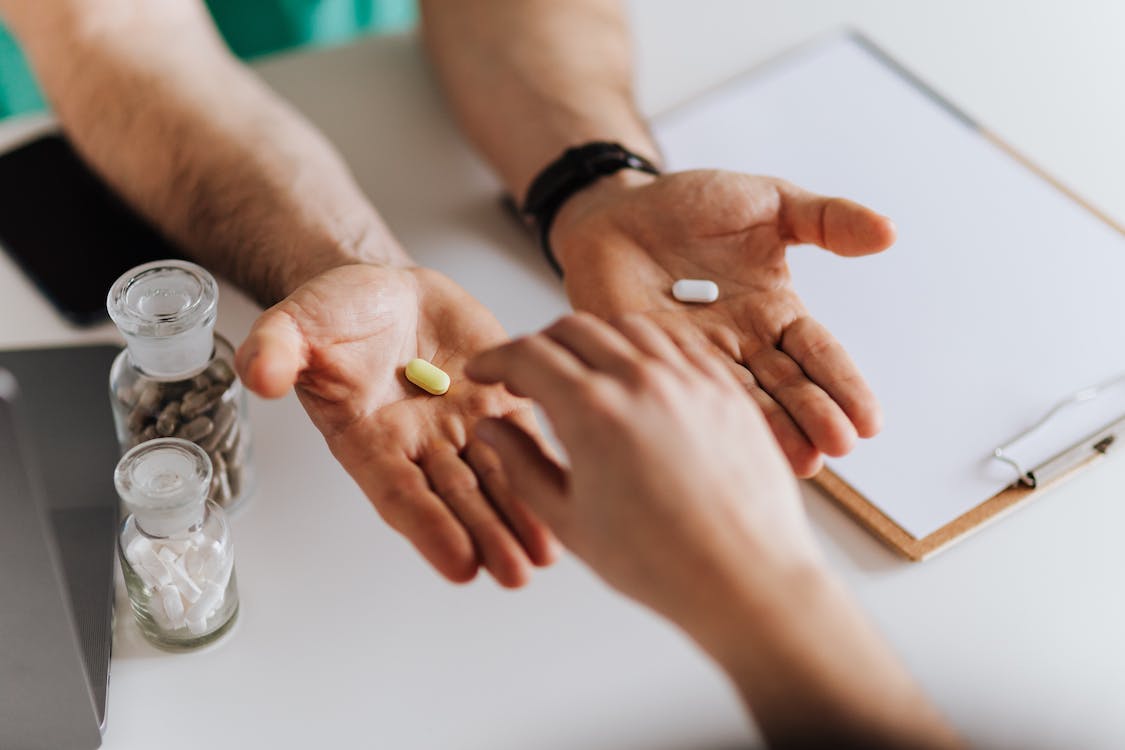Compound Interest – How Compounding Can Make a Difference in Your Financial Future
by siteadmin

Compound Interest – How Compounding Can Make a Difference in Your Financial Future
Compound interest is one of the most powerful tools for growing your money. Whether it's with savings, money market accounts, certificate(s) of deposit or investments, compounding can make a big difference in your financial future.
Compounding pharmacists can change the form of medication to create a solution, cream, tablet or liquid that is easier for patients to swallow or take by mouth. This is done for a number of reasons, including:
1. Customized medications
A patient’s medical needs can change throughout their lifetime, and compounding allows pharmacies to meet those changes with personalized medications. Whether patients are lactose intolerant, have trouble swallowing pills or have an allergy to an unnecessary dye in a commercial medication, compounding provides a solution.
Compounding pharmacists can alter ingredients or turn non-suitable dosage forms into pill, liquid or ointment formulations. This is particularly beneficial for children with chronic conditions — they often experience difficulty with pill-swallowing and develop a gag reflex. Having one formula to take can help improve their medication adherence, which may lead to better health outcomes.
Despite the recent controversy surrounding the NECC fungal meningitis outbreak, compounding is safe and critical to pharmacy practice. APhA offers a variety of resources, including a Just the Facts article and a detailed book chapter on compounding, to support pharmacists and health care providers in understanding this important practice.
2. Medication adherence
Medication adherence is one of the biggest challenges in healthcare. Non-adherence can result in serious health complications. Medication compounding can help improve adherence by tailoring prescriptions to meet patients’ needs.
A compound pharmacist can mix medicines into different forms, such as gels, creams, suppositories, and suspensions. This can make them easier to swallow or apply to the skin. This can also make the medicine taste less bitter or unpleasant. Several studies have found that the way medication is administered can affect medication adherence.
A compound pharmacist can also add flavoring to medications to reduce the risk of non-adherence. This is especially helpful for kids or seniors who may not like the taste of pills. They can also remove allergens from a medicine, such as gelatin or lactose, to avoid allergic reactions in sensitive patients. Compound pharmacies can also combine commercial medicines into single dosage formulas, which can save time and money for patients who need to take many medications at once. This can be beneficial for geriatric and oncology patients who often have polypharmacy.
3. Reduced risk of side effects
Pharmaceutical compounding allows a pharmacist to add ingredients that can reduce the risk of side effects that can occur with commercially available drugs. These ingredients can include binders, dyes, fillers and other stabilizing agents that can cause allergic reactions in some patients.
Compounding pharmacists work with physicians to help them find treatment options that offer greater flexibility for patients and improved outcomes for diseases such as glaucoma, men's health, women's health, pain management and animal health. They can prepare sterile and nonsterile preparations, including topical ointments, creams, pills, liquids, gels, eye drops and suppositories.
In contrast, manufactured medications (also called marketed drugs) are made in a standard way that is available to everyone at all times. This includes over-the-counter drugs like anti-inflammatories, analgesics and antidepressants. The Food and Drug Administration regulates the manufacture of these drugs, but does not govern the manufacture of compounded medications.
4. Increased patient satisfaction
Before pharmaceutical companies started mass-producing medications, pharmacists were responsible for putting together mixtures of medications for specific patient needs. Today, compounding pharmacists combine this age-old craft with state-of-the-art technology to produce medications that are customized to the individual needs of patients. This includes medication dosage forms that do not exist commercially such as troches, lollipops and transdermal gels; specific strengths for certain situations; and combinations of compatible drugs free of troublesome excipients such as dyes, sugar, lactose and alcohol.
Sometimes large manufacturers discontinue the production of certain meds, which can be frustrating for patients who still need them. Compounding pharmacies can recreate these medications and offer them to patients so that they can continue with their treatment plans.
Offering these unique, individualized prescriptions positions you as an expert clinical resource in your community and boosts the bottom line of your pharmacy. It also helps to ensure that patients stick with their treatments and achieve the therapeutic outcome desired.
https://highcreekpharmacy.com/
https://highcreekpharmacy.com/ask-elliot/
Compound Interest – How Compounding Can Make a Difference in Your Financial Future Compound interest is one of the most powerful tools for growing your money. Whether it's with savings, money market accounts, certificate(s) of deposit or investments, compounding can make a big difference in your financial future. Compounding pharmacists can change the…
Recent Posts
- Lawn Care Spring Branch Advocates for Property Care: Combatting Weed Growth and Preserving Curb Appeal
- Utah Disasters: Rebuilding Together
- Introducing Boca Dental and Braces: Revolutionizing Dental Care in Las Vegas
- Mighty Metal Inc.: Unveils Revolutionary Steel Pergolas in St. George, Redefining Outdoor Elegance
- Embracing Elegance and Expertise: I AM Salon in St. George
